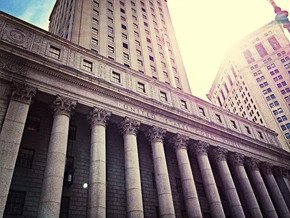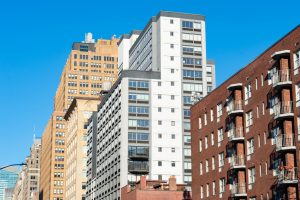2019 NYC Rent Law: what has changed?
Go Back To Previous Page In 2019, the NYC Rent Law underwent significant modifications. We drafted a synthesis of the 145-page bill that passed. Several new laws took effect in New York City following the “Housing Stability and Tenant Protection Act of 2019″. On June 14, 2019, Albany lawmakers approved, and Governor Cuomo signed. This legislation changes New York State’s rent laws. Many have focused on the changes to the stabilization law. However, landlords and prospective tenants should understand that the legislation’s effects go beyond stabilization. The new bill implemented significant changes to rent stabilization laws and real property laws. Most of the changes affect rent-stabilized units. Some new regulations involve “normal” apartments, including standard condo and co-op apartments in New York. Let’s also discuss the NYC rent increase laws in 2019.
In 2019, the NYC Rent Law underwent significant modifications. We drafted a synthesis of the 145-page bill that passed. Several new laws took effect in New York City following the “Housing Stability and Tenant Protection Act of 2019″. On June 14, 2019, Albany lawmakers approved, and Governor Cuomo signed. This legislation changes New York State’s rent laws. Many have focused on the changes to the stabilization law. However, landlords and prospective tenants should understand that the legislation’s effects go beyond stabilization. The new bill implemented significant changes to rent stabilization laws and real property laws. Most of the changes affect rent-stabilized units. Some new regulations involve “normal” apartments, including standard condo and co-op apartments in New York. Let’s also discuss the NYC rent increase laws in 2019.
Changes to the deregulation of rent-stabilized apartments in the 2019 Law
 The 2019 law eliminated the majority of the deregulation protection for stabilized units. Deregulation remains a thing of the past, except for rent-stabilized apartments in buildings with 421a tax benefits.
The 2019 law eliminated the majority of the deregulation protection for stabilized units. Deregulation remains a thing of the past, except for rent-stabilized apartments in buildings with 421a tax benefits.
Stabilized units in 421a buildings can still deregulate gradually under the new legislation.
The 2019 legislation affects approximately one million rent-stabilized units in New York City. Rent-stabilized apartments in NYC consist of all apartments built between 1947 and 1974 (except those deregulated before the new law).
Those apartments (constructed after 1974) also received tax benefits under the 421a and J-51 tax abatement programs. The 2019 law does not “re-regulate” any units previously removed from the program.
Before the 2019 law, it was legal to “deregulate” a stabilized apartment over time through 2 processes:
- High-Rent Vacancy Deregulation or
- High-Rent High Income-Deregulation.
 The authorities mentioned an affordability crisis to justify their decision. They claim over 300,000 rent-stabilized apartments have been removed from the regulation program.
The authorities mentioned an affordability crisis to justify their decision. They claim over 300,000 rent-stabilized apartments have been removed from the regulation program.
Landlords converted them into regular units in NYC over the last 25 years.
Under High-Rent Vacant Apartment Deregulation, a landlord could deregulate a vacant apartment if a potential tenant moved into an empty unit and the legal price rose above $2,774.76. Deregulation would apply if the new tenant’s lease were below the threshold, as long as the legal threshold was above.
In the past, owners could deregulate an occupied unit if the rent exceeded the following:
- (i) the Deregulation Rent Threshold (DRT) and
- (ii) the total household annual federal gross income was over the Deregulation Income Threshold (DRT) of $200k for the preceding years. This condition was called the “High-Rent High Income-Deregulation.”

Individual Apartment Improvement (“IAI”) and Major Capital Improvement (MCI)
The new 2019 law has significantly limited options for increases on rent-stabilized apartments. Previously, there were four ways to legally adjust payments, including the possibility for landlords to raise rents by 20% upon a vacancy using the “statutory vacancy bonus.”
Under the 2019 law, payments can only be adjusted through capital improvement work on stabilized units and buildings.
The new 2019 law has reduced the landlord’s ability to increase the rent based on an Individual Apartment Improvement (“IAI”).
Before, apartment improvements used to permit an increase of (i) 2.5% in buildings with less than 35 apartments and (ii) 1.67% in buildings with more than 35 apartments; the new law reduced these percentages to 0.6% and 0.55%.
The legislation also capped the work qualifications under an IAI ($15k for three improvements in any 15 years).
 The law also limited a landlord’s ability to increase rents through Major Capital Improvement (MCI) buildings.
The law also limited a landlord’s ability to increase rents through Major Capital Improvement (MCI) buildings.
Before that, building improvements used to permit a rent increase of 1.04% for buildings with fewer than 35 apartments and a 0.92% increase for buildings with more than 35 apartments.
The law decreased these percentages to 0.69% and 0.66%. The new law also limits eligibility for MCI work to building improvements such as windows, roofing, plumbing, and heating, whose costs will also be regulated.
Finally, under the 2019 law, buildings with fewer than 35% regulated tenants are also ineligible for MCI rent increases.
Rent increases
Furthermore, under the 2019 law, all rent increases (from Individual Apartment Improvements and Major Capital Improvements) expire in 30 years. Previously, those increases were permanent. The 2019 law now limits a landlord’s ability to charge rent upon a lease renewal if its tenant receives a preferential level.
A preferential level means an amount lower than legal. Before lease renewal, the preferential rent could be fully or partially eliminated. Preferential rents are the base amount for each tenant’s occupancy; any rent increases remain limited.
Under the 2019 law, all renewals are calculated based on preferential rent plus whatever rent increases the NYC Guidelines Board permits.
Changes to rent overcharge laws for stabilized apartments
 The new law modified rent overcharge rules in tenants’ favor due to the 2019 law. This legislation expanded the statute of limitations for recovery of a rent overcharge to six years (from four).
The new law modified rent overcharge rules in tenants’ favor due to the 2019 law. This legislation expanded the statute of limitations for recovery of a rent overcharge to six years (from four).
Before the law, there was a 4-year limit for filing a complaint. Consequently, landlords were previously permitted to dispose of rent records older than four years, and the law carved out some limited exceptions to these limitations.
In the 2019 law, there is currently no limitation on the look-back period.
The 2019 law also increased a landlord’s exposure to treble damages for a rent overcharge to six years from two years before. Additionally, the legislation removed the ability for owners to avoid treble damages if they voluntarily return the amount of the rent overcharge before a court makes a decision.
Changes to the owner use exception for rent-regulated housing.
 The 2019 law limits the “owner use” provision to using a single rent-regulated unit as the owner’s or their family members’ primary residence. The landlord must prove an “immediate and compelling” necessity instead of just a “good faith” standard employed before the 2019 law.
The 2019 law limits the “owner use” provision to using a single rent-regulated unit as the owner’s or their family members’ primary residence. The landlord must prove an “immediate and compelling” necessity instead of just a “good faith” standard employed before the 2019 law.
The new law also restricts the owner’s eligibility for use except if the tenant is over 62 years old, disabled, or has occupied the apartment for at least 15 years.
Besides, the 2019 law provides tenants with a cause of action if they get evicted because the landlord makes a fraudulent claim. In 2019 combining or splitting apartments to obtain a “first rent” is still possible. Also, “substantial building rehabilitation” will permanently remove it from stabilization.
Modifications to the Real Property Law for all apartments in NYC
The law modified the real property for regulated and standard apartments. They include notice requirements for non-renewal, rent increases above 5%, apartment re-letting, security deposits, and application fees.
Retaliatory eviction
The law strengthened the retaliatory eviction provision for all apartments in NYC. The new law prohibits a landlord from retaliating against a tenant who makes a good-faith complaint. The landlord has a year to prove that eviction is not retaliation (versus six months before).
The new law also broadens the scope to include complaints made by tenants directly to landlords, whereas, under previous legislation, only authorities could make the allegations.
Notice requirements for non-renewal and significant increases
The 2019 law increases the notice requirements for a non-renewal of a lease or a rent increase over 5% to 30 days’ notice for rentals under a year. Sixty days (between one and two years) and 90 days (2 years or more). Before the legislation, landlords of unregulated units did not have to send any notice of non-renewal.
Duty to mitigate damages
 The 2019 law requires landlords of both regulated and standard units to make a reasonable, good-faith attempt at re-renting an apartment if a tenant vacates before the end of the lease.
The 2019 law requires landlords of both regulated and standard units to make a reasonable, good-faith attempt at re-renting an apartment if a tenant vacates before the end of the lease.
Landlords must release at the lesser of the previous rent or market level, and the tenant is off the hook for damages when the landlord leases the apartment again.
If market rent falls after signing a lease, the current tenant remains only responsible for the lower market rent.
Restrictions on the usage of the court record for screenings in the 2019 NYC Rent Law
Under the 2019 law, a landlord may not consult housing court records for tenant screening. Accessing court records would suggest that the landlord has violated this statute. A bad credit score represents a good reason for rejecting a tenant under the new legislation.
Limitations on security deposits for all apartments in the 2019 NYC Rent Law
 The 2019 law mandates a maximum security deposit for no more than one month of rent for regulated and standard units. The maximum amount an owner can collect remains a month’s rent and a one-month deposit.
The 2019 law mandates a maximum security deposit for no more than one month of rent for regulated and standard units. The maximum amount an owner can collect remains a month’s rent and a one-month deposit.
Receiving more than one month of prepaid rent would subject a landlord to treble damages. Furthermore, the landlord must return deposits to the tenant within 14 days of moving out and provide the tenant with an itemized statement of deductions and any remaining deposit portion within 14 days.
Additionally, upon initial lease signing, a landlord must offer to accompany the tenant to a walkthrough inspection of the apartment and provide a written agreement specifying any defects or damages.
Lastly, tenants have the right to request an inspection before move-out and receive an itemized statement from the landlord specifying any repairs or cleaning that may warrant a reduction of the tenant’s security deposit. Tenants have the option to repair defects discovered during the inspection before the expiration of the lease.
Limitations on the application and late fees
 Under the new 2019 law, a landlord cannot charge an application fee higher than $20. A broker representing a landlord may not collect an application fee of more than $20. However, the limitation does not apply to real estate agents who represent tenants.
Under the new 2019 law, a landlord cannot charge an application fee higher than $20. A broker representing a landlord may not collect an application fee of more than $20. However, the limitation does not apply to real estate agents who represent tenants.
Furthermore, a tenant can only pay the minimum of (i) $20 or (ii)the cost of a credit report. Landlords must also provide a copy of that credit report to the tenant. If a prospective tenant provides a copy of a criminal and background check or full credit report conducted within 30 days, the landlord waives the application fee.
The new law also caps late fees for regulated and unregulated rental properties at $50. Landlords must offer a grace period of at least five days.
Changes to housing court procedures
 The 2019 law significantly expands the process for handling non-payment. If the tenant fails to pay the rent within five days, the landlord must send a written notice to the tenant and retain the receipt.
The 2019 law significantly expands the process for handling non-payment. If the tenant fails to pay the rent within five days, the landlord must send a written notice to the tenant and retain the receipt.
Furthermore, as mentioned earlier, the tenant must receive a fourteen-day demand for rent in addition to the 5-day. Any claims for non-payment summary judgment may only be for the lease amount and cannot include other charges, such as late fees. Also, the time a tenant has to answer a non-payment petition has increased to ten days from five.
Furthermore, the landlord’s counsel must submit a written motion to request continued rent payment during the proceeding. Before the 2019 legislation, an oral action for continued rent payment was allowed.
The 2019 law also allows tenants to bring forth orders to show cause and seek further stays of court determination after trial. Previously, a lawsuit was the final determination in a non-payment proceeding.
The consequences of recent changes to NY rent laws
 The most significant unknown effect of the law remains its impact on the valuations of older rental buildings with rent-stabilized apartments. Before the legislative changes, an owner had several options to raise rents to remove units from stabilization.
The most significant unknown effect of the law remains its impact on the valuations of older rental buildings with rent-stabilized apartments. Before the legislative changes, an owner had several options to raise rents to remove units from stabilization.
Valuations of buildings trading in New York City include that ability. Indeed, the new legislation severely limits the ability to remove apartments from the stabilization program. As a result, we think the income for buildings with rent-stabilized units declines over time.
Furthermore, the valuation’ multiples’ may decrease over time to reflect the increased risk of owning a building in NYC with rent-stabilized units. Consequently, we expect the 2019 legislation to severely depress the valuations of multifamily buildings in New York City and real estate in general by contagion.


